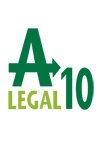Best Natural Resources Lawyers in Bree
Share your needs with us, get contacted by law firms.
Free. Takes 2 min.
List of the best lawyers in Bree, Belgium
About Natural Resources Law in Bree, Belgium
Bree is a municipality in the province of Limburg in the Flemish Region of Belgium. Regulation of natural resources - including land use, forests, water, soil, minerals, waste and biodiversity - is primarily a regional competence. That means most rules affecting natural resources in Bree are set and enforced by Flemish authorities, with implementation and local decisions handled by the Province of Limburg and the municipal government of Bree.
Key legal themes you are likely to encounter include permits for land use and construction, extraction and quarrying permits, forestry and nature management rules, water and wastewater requirements, soil-remediation obligations, environmental impact assessment rules for larger projects, and protections for species and habitats under EU and regional nature law. Compliance and enforcement can involve administrative permits, conditions, sanctions and sometimes judicial proceedings.
Why You May Need a Lawyer
Natural resources matters often require legal help because they combine technical, administrative and sometimes criminal elements. Common situations where a specialist lawyer is helpful include:
- Applying for or appealing an environmental or land-use permit - such as an omgevingsvergunning - where procedural and substantive rules must be followed.
- Facing enforcement action, fines or orders to stop activities that authorities deem illegal or harmful to the environment.
- Addressing soil contamination, negotiating remediation obligations and cost allocation with responsible parties.
- Disputes over property rights, boundary issues, access to natural resources and compensation for expropriation or restrictions on use.
- Obtaining permits for extraction, quarrying, forestry operations or for changing land use in areas with conservation restrictions.
- Navigating Natura 2000 and protected-species rules when a planned project may affect habitats or species.
- Advising on environmental due diligence for buying or developing land, including identifying hidden liabilities.
- Representing clients in administrative appeals, judicial proceedings or negotiated settlement and mediation.
Local Laws Overview
Natural resources issues in Bree are governed by a mix of EU, regional (Flemish), provincial and municipal rules. The broad points to know are:
- Regional competence - In Belgium, the Flemish Region sets most rules on environment, nature, water, soil and spatial planning. Expect Flemish decrees, regulations and administrative procedures to apply.
- Omgevingsvergunning and spatial planning - Projects that affect land use, construction and the environment commonly require an environmental and planning permit known as an omgevingsvergunning. Zoning plans and local spatial plans at the municipal or provincial level dictate allowable uses.
- Environmental impact assessment - Larger projects or those in sensitive locations can trigger a required environmental impact assessment and public participation process.
- Nature protection and Natura 2000 - EU directives and regional nature protection laws protect habitats and species. Activities that may significantly affect protected areas or species will face stricter review and mitigation requirements.
- Water and soil - Water management rules, permits for abstractions or discharges and soil-protection requirements are enforced by Flemish water and environmental agencies. Contaminated sites can trigger remediation duties and liability for clean-up costs.
- Forestry, hunting and fishing - Forestry activities and harvesting of timber are subject to specific rules and permits, and hunting and fishing are regulated by provincial and regional rules including licensing requirements.
- Waste and emissions - Handling, storage, transport and disposal of waste, as well as emissions to air or water, require permits and compliance with technical standards enforced by environmental authorities.
- Enforcement and sanctions - Non-compliance can lead to administrative sanctions, orders to rectify, fines and in serious cases criminal prosecution. Administrative appeal routes and judicial review are available but often time-sensitive.
Frequently Asked Questions
Do I always need a permit to change how I use my land in Bree?
Not always, but many changes in land use, construction, excavation or activities that affect the environment will require a permit - frequently the omgevingsvergunning. Whether a permit is required depends on local zoning, the size and nature of the activity, and whether the site is in a protected or sensitive area. Always check with the municipal planning service before starting work.
Who enforces natural resources rules in Bree?
Enforcement is shared. Flemish regional agencies set and supervise compliance, the Province of Limburg and the Municipality of Bree implement and monitor many local rules, and specialized agencies oversee water, waste and nature. Inspectors can issue orders or fines, and cases can be brought before administrative bodies or courts.
What should I do if my neighbour starts an activity that harms the environment or my property?
Start by documenting the harm - photos, dates, any communications - and inform the municipal authorities or the relevant environmental agency. If the activity breaches a permit or legal rule, the authority may investigate. For complex disputes, health or property damage, or where quick action is needed, consult a lawyer experienced in environmental and property law to discuss injunctions, administrative complaints or civil claims.
How does Natura 2000 affect building or development projects near Bree?
Natura 2000 protects important habitats and species across the EU. If your project may affect a Natura 2000 site or species, it will face extra scrutiny. Authorities must assess potential significant effects and may require mitigation or refuse permission. Early screening and specialist ecological assessments help determine obligations and chances of approval.
Who pays for cleaning up contaminated soil on a property?
Liability for soil contamination is generally strict and can rest with the polluter, current owner, or previous owner depending on the circumstances and applicable regional rules. Costs can be substantial. Before purchasing or developing land, conduct environmental due diligence. If contamination is discovered, a lawyer can help determine liability and negotiate remediation responsibilities or financial solutions.
What are the typical timelines and appeal rights for permit decisions?
Timelines vary by permit type and procedure. Many administrative decisions include a limited period to lodge an administrative appeal or to contest a permit in court. Time limits can be short - often weeks to a few months - so act promptly if you wish to challenge a decision. A lawyer can calculate deadlines and file appeals correctly.
Can I extract minerals or operate a quarry near Bree?
Extraction and quarrying require specific permits and environmental reviews. Rules cover the impact on water, dust, noise, biodiversity and landscape, and often require rehabilitation plans for the site after extraction. Local zoning and regional extraction policies may restrict or prohibit certain activities in particular areas.
How are forestry and timber harvesting regulated?
Forestry activities are regulated to ensure sustainable management and protection of biodiversity. Permits or notifications may be needed for certain tree felling, and protected tree species or habitats may impose additional restrictions. Public and private forests can have different management obligations under regional rules.
What happens if I breach an environmental permit condition?
If you breach permit conditions, authorities may impose corrective measures, fines, suspension or revocation of the permit, and in severe cases criminal charges. You may also face civil liability if your breach damages others. Respond promptly to enforcement notices and seek legal advice to limit exposure and resolve the issue.
How can I find a lawyer who understands natural resources law in Bree?
Look for a lawyer or firm with specific experience in environmental, planning and administrative law and a track record in the Flemish Region. Ask about past cases, familiarity with regional agencies and procedures, and whether they have technical contacts - for example ecologists or soil specialists. Local knowledge of the Province of Limburg and the municipality of Bree is a plus.
Additional Resources
- Municipality of Bree - for local zoning plans, building permits and municipal contacts.
- Province of Limburg - for provincial policies that affect land use and nature management.
- Flemish Government - environment and spatial planning departments - for regional regulations and permit frameworks.
- Agency for Nature and Forests - regional body overseeing nature conservation and forest management.
- Flanders Environment Agency - regional authority involved in environmental monitoring and enforcement.
- Public Waste Agency of Flanders - for waste management rules and contaminated site policies.
- Local bar association or the Flemish Bar Federation - to find qualified lawyers and check professional credentials.
- Independent ecological, hydrological or soil specialists - useful for assessments required by permits or litigation.
Next Steps
- Gather documents - collect property deeds, existing permits, past correspondence with authorities, environmental reports and site plans.
- Check local rules - contact the municipal planning service in Bree to clarify zoning, permit requirements and any pending local restrictions.
- Get technical advice early - ecological, hydrological or soil experts can identify potential barriers before you apply for permits or make decisions.
- Consult a specialist lawyer - choose a lawyer experienced in Flemish environmental and planning law to review your situation, advise on permit strategy, appeals or risk management and represent you before authorities or courts.
- Act promptly - administrative and judicial deadlines can be short. If you receive an enforcement notice or an unfavorable decision, seek legal advice immediately to protect your rights and options.
- Consider dispute resolution - mediation or negotiated settlements can sometimes resolve neighbor or permit disputes more quickly and affordably than litigation.
For complex natural resources matters in Bree, combining technical expertise with legal representation gives the best chance of navigating rules, minimizing risks and achieving a workable result.
Lawzana helps you find the best lawyers and law firms in Bree through a curated and pre-screened list of qualified legal professionals. Our platform offers rankings and detailed profiles of attorneys and law firms, allowing you to compare based on practice areas, including Natural Resources, experience, and client feedback.
Each profile includes a description of the firm's areas of practice, client reviews, team members and partners, year of establishment, spoken languages, office locations, contact information, social media presence, and any published articles or resources. Most firms on our platform speak English and are experienced in both local and international legal matters.
Get a quote from top-rated law firms in Bree, Belgium — quickly, securely, and without unnecessary hassle.
Disclaimer:
The information provided on this page is for general informational purposes only and does not constitute legal advice. While we strive to ensure the accuracy and relevance of the content, legal information may change over time, and interpretations of the law can vary. You should always consult with a qualified legal professional for advice specific to your situation.
We disclaim all liability for actions taken or not taken based on the content of this page. If you believe any information is incorrect or outdated, please contact us, and we will review and update it where appropriate.









